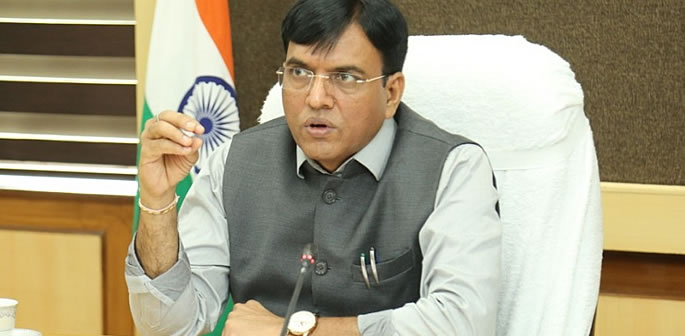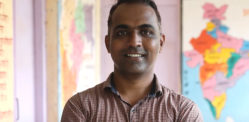"Mental health is both an old issue and an emerging issue."
Union Health Minister Mansukh Mandaviya has stated that teachers should receive training on mental health issues among children so that they can identify such problems early and refer them for treatment or counselling.
The minister spoke about UNICEF’s ‘The State of the World’s Children 2021 – On My Mind: Promoting, Protecting and Caring for Children’s Mental Health’ report, which was published on October 5, 2021.
He stressed that understanding mental health among children should be incorporated into the teacher training curriculum.
Mr Mandaviya said that families should encourage their children to talk openly in order to address any emerging mental health issues early.
He also highlighted the impact Covid-19 had on mental health in India.
Mr Mandaviya recalled his own experience as the minister in charge of the Department of Pharmaceuticals during the second wave in April 2021.
He said: “Production capacity of drugs had to be amplified and due official process to establish new plants had to be speeded up.
“Such work in the midst of a then unfolding human tragedy was very stressful.
“When the second wave came, there was a problem of medicine, oxygen, (and) demands were coming from all quarters. All this used to give me mental stress too.”
He added that yoga, deep breathing and cycling helped him overcome the stress.
On the report’s significance, Mr Mandaviya said:
“Mental health is both an old issue and an emerging issue.
“While our traditional systems of medicine thoroughly emphasise on holistic health and complete well-being, mental health problems in developing countries like India have been on the rise.”
He explained that children and teenagers from rural backgrounds get a chance to interact with a wide number of other family members who they can speak to in times of emotional distress and seek guidance on matters which are sometimes avoided by parents.
However, Mr Mandaviya added the nuclear family culture has led to an increase in alienation and subsequently, a rise in mental distress.
He said: “It is important that in families all the members sit together and parents must treat their children as friends and ensure a free dialogue takes place so that children are able to talk freely.
“They should also observe closely the changes happening in their behaviour.”
Pointing out that teachers are important figures when it comes to addressing mental health issues.
“Teachers should be trained and oriented about mental health issues among children and understanding mental health issues among children should be made part of their training curriculum.
“Teachers should be adequately trained to identify symptoms of emerging mental health issues among children and refer them to psychiatrists for treatment or counselling so that their problems can be addressed early.”
He expressed concern that 14% of the world’s children face mental health issues.
“Fourteen per cent of children in the world are facing mental health issues, it’s a serious problem and if we will not address it on time then it will have an adverse effect on society.”
UNICEF India representative Yasmin Ali Haque explained that children in the country have experienced a challenging time due to the risks and restrictions posed by the pandemic.
She said: “Nothing could have prepared them for the onslaught of the second wave of the pandemic that hit India earlier this year.”
She added that children witnessed suffering and uncertainties that no child should have to see.
Being away from friends, family and socialisation caused isolation and anxiety.
Not only have they been experiencing such issues, many are also at a higher risk of neglect and abuse.
Ms Ali Haque continued: “What we know about the mental health impact of the pandemic on children is just the tip of the iceberg.
“I am grateful to Minister Mansukh Mandaviya for joining us to spotlight the mental health of children, and for leading the national initiatives to address the issues highlighted in the UNICEF global report.”
According to a survey conducted by UNICEF and Gallup, children in India seem reluctant to seek support for mental stress.
Forty-one per cent of people between 15-24 years old in India said that seeking support for mental health issues is a good thing.
This is compared to an average of 83% for 21 countries.
India was the only country out of the 21 where only a minority of young people felt that those experiencing mental health issues should seek support.
In every other country, a majority of young people, ranging from 56 to 95%, felt that reaching out was the best way to deal with mental health issues.






























































